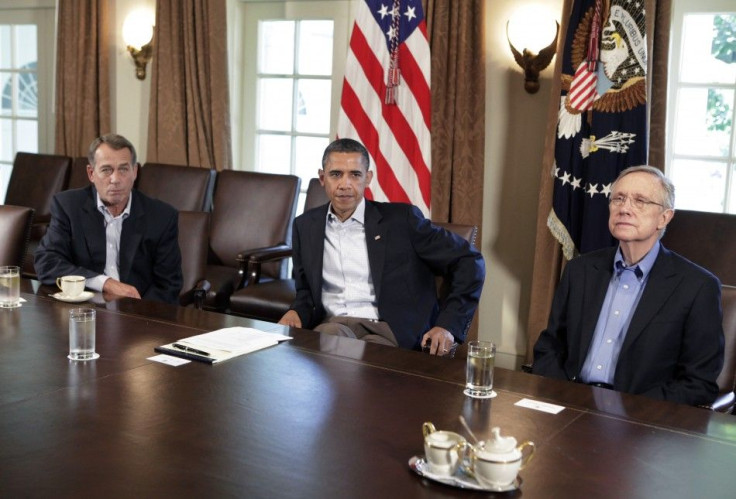Would Reid, Boehner Hybrid Bill End Debt Deal Impasse?

What's the most likely solution to the acrimonious stalemate on Capitol Hill between Democrats and Republicans that threatens to trigger a dreaded U.S. Government default?
At this juncture, Tuesday 12:20 p.m. EDT, it appears to be a hybrid plan from Senate Majority Leader Harry Reid, D-Nev., and House Speaker John Boehner, R-Ohio.
Reid Tuesday dropped Democrats' insistence that a debt deal plan include a tax increase, Bloomberg News reported Tuesday.
As a result, both Reid and Boehner's plans have a $1.2 trillion spending reduction over 10 years as a starting point and both call for bipartisan committees to recommend future savings, with a guaranteed vote in Congress.
Political/Public Policy Analysis: The key to any Reid/Boehner hybrid would be if the $1.2 trillion in cuts is connected to a plan to both substantively cut the deficit and increase the debt ceiling, either directly, or via the bipartisan committee.
That's because President Barack Obama has said he will veto any measure that doesn't cut the deficit adequately or that doesn't raise the debt ceiling adequately to prevent a second debt ceiling vote from occurring in 2012. Congressional Democrats and Obama view that two-vote pount as a political posture -- as an election-year attempt to force a difficult vote in a presidential election year.
Obama has also said not raising the debt ceiling adequately would not remove the 'debt ceiling doubt' from the minds of corporate CEOs and others responsible for considerable hiring -- creating another potential headwind for the currently tepid U.S. economic recovery.
The bottom line: Despite months of delay on what previously has been an uneventful legislative action -- raising the debt ceiling -- via a hybrid plan, Reid and Boehner have a chance to 'right the U.S. ship of state,' if the hybrid bill is linked to a debt ceiling increase large enough to last until 2013.
The lack of revenue increase in the hybrid bill should enable the Senate to pass it with ease: obtaining enough support from Democrats to offset about 90 'no' votes from House Tea Party members will be tougher.
Therefore, on a scale of 0 to 100 percent, the likelihood of a U.S. Government default remains at 25 percent on Tuesday afternoon, the same as it was Tuesday morning.
© Copyright IBTimes 2024. All rights reserved.





















